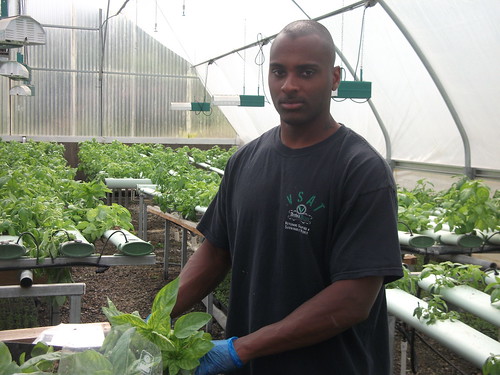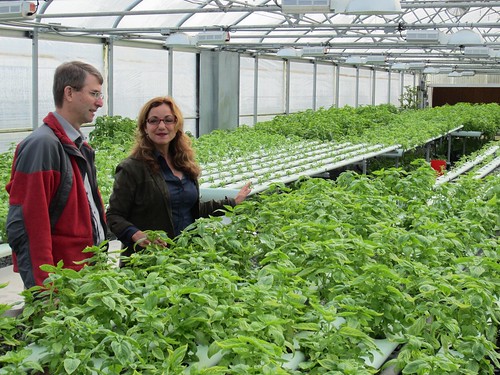
Compost tea (a mixture of recycled organic matter soaked in water), hydroponic living basil, and organic certification are terms that, at first glance, may not have much of a connection to military veterans. Colin Archipley, a decorated Marine sergeant, and his wife Karen however saw the combination as a win-win when they founded the Veterans Sustainable Agriculture Training (VSAT) program outside San Diego, California.
Many veterans who have served our country have challenges transitioning to civilian life and struggle with Post-Traumatic Stress Disorder and high unemployment rates. After three tours in Iraq, Colin found his solace working on the Archipley’s newly-purchased, neglected avocado farm, which sat on 3 acres outside of Camp Pendleton, a Marine Corps base.
When the Archipleys received their first water bill, they determined their farm needed to be more sustainable. They decided to move to a water-efficient hydroponic system (roots placed in nutrient-rich water instead of soil) that reduces water use by up to 90%. They received a loan from the USDA Farm Service Administration to build a larger greenhouse, tripling their production.
They also were certified organic by California-based CCOF Certification Services (accredited and overseen by the USDA National Organic Program, part of USDA’s Agricultural Marketing Service) and used their hydroponic system to grow organic basil, tomatoes, and variety of greens and other herbs. Produce is delivered as living plants (with roots still attached) to local farmers markets and stores, which saves water and retains freshness.
Colin wanted to help other veterans heal their wounds through organic farming—and to use their acquired skills to start agricultural businesses of their own. The VSAT program has partnered with local community and state colleges to offer veterans an intensive six-week course to learn how to grow hydroponic crops from seed to market. Participants then take an exam and present their business plan to potential investors, produce buyers, and human resources personnel. At the end of the course, participants have a solid business plan and the know-how to start their own similar operation.

I was able to attend the business plan presentations and graduation of a recent VSAT class, and it was very inspiring to see what the Archipleys have done--both how they have helped fellow combat veterans transition to civilian life and that they saw organic agriculture as part of that path.
The Veterans Sustainable Agriculture Training Program has helped over 100 military veterans transition to the civilian work force with other locations on the horizon. One memorable graduate is Mike Hanes, a decorated veteran. He went from being homeless and unable to re-engage in civilian life to creating his own organic hot sauce, DANG!!!, which is now for sale at grocery stores around the country.
Based on the last agricultural census, the average American farmer is 57 years of age, and nearly 30 percent of American farmers are over the age of 65. Nearly 45 percent of the military come from a rural background, and USDA is pushing for 100,000 new farmers. We applaud the Archipleys for continuing to serve their country by supporting our heroes and helping to build the next generation of organic farmers.
